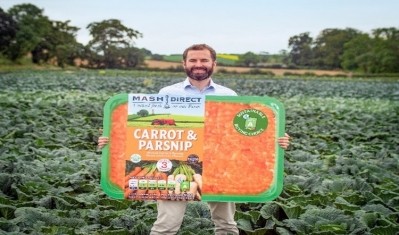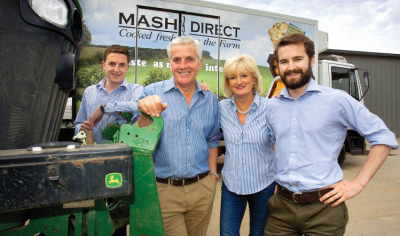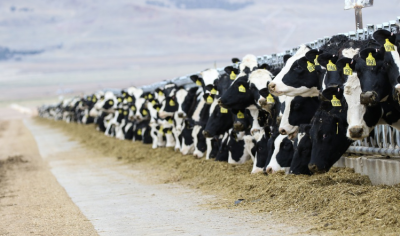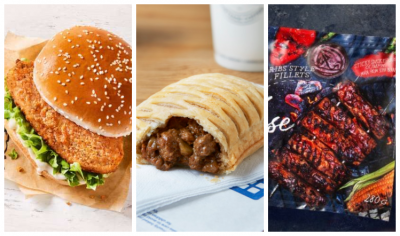Mash Direct marching toward growth in 2020
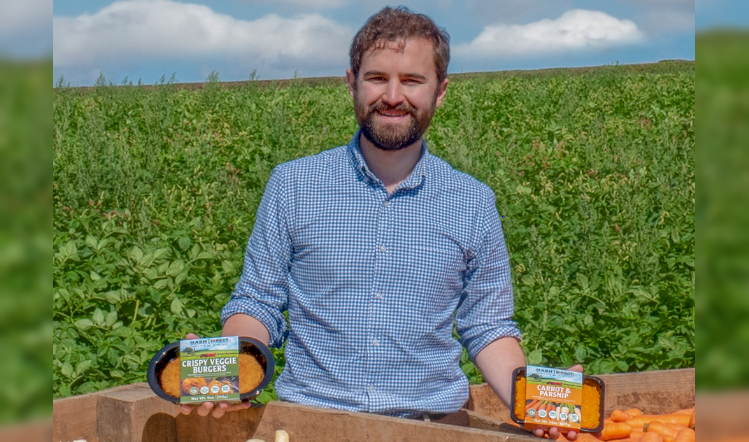
Hamilton’s predictions for 2020 followed a successful year of growth for the company, in which retail sales increased by 10.3% year-on-year and foodservice sales rose by 29.2% to £2.3m.
“It’s a big record year for us in 2019 and, in 2020, we’re looking at big growth again,” Hamilton told Food Manufacture. “Really, we’re seeing that on two fronts – big growth in the retail side and growing the Mash Direct brand, as well as in foodservice and restaurant.
“Those were the two big driving forces behind how we’ve gotten to where we are in 2019, so 2020 works by forecasting big growth again and there’ll be job creation off the back of that.”
Mash Direct plans to create 10–15 new roles across the business in key strategic growth areas and help grow the scalability of the company.
“We’re not looking at adding to hands on the line, it’s managerial roles that we’re looking at, to strengthen the team, so that we can then achieve scalable rapid growth for years to come,” he added.
Unsurprisingly, a key area of growth for Mash Direct in 2020 will be the vegan sector, which is currently experiencing widespread public recognition though the annual Veganuary campaign throughout the month of January.
Veganuary Buzz
For Hamilton, the focus is on taking the buzz surrounding Veganuary and making it last all year to normalise the idea of vegan products appearing on store shelves.
“People are expecting [Vegan products] as part of our offering rather than focusing on it just one month a year. It’s something that’s there all year round and it’s maybe not just shoppers who want to shop exclusively in the vegan section, it’s people who want to dip in and out of it.
However, Mash Direct isn’t keen on the idea of simply producing vegan products for the sake of scoring a quick buck. For Hamilton and his team, the challenge is to produce food that doesn’t need to contain ingredients derived from animals if it doesn’t need them.
“We’re looking at ways to launch products without saying all over the pack they’re vegan, but we’re keeping vegans in mind with innovation, rather than doing something exclusively for that small corner of the marketplace,” Hamilton continued. “We think they are making such a big influence on the market now that we’d like to cater for them on a year-round basis.
“So even when they’re buying something – for example a croquette – we shouldn’t be adding stuff there that’s going to rule out part of their household.”
Spectre of Brexit
As Mash Direct marches into 2020, Hamilton, much like every other food and drink sector boss, will need to address the looming spectre of Brexit and how it will affect his business. But as he described, there are plenty of opportunities to help grow sales.
Being able to grow and manufacture its products in the UK meant the company could fill the gaps made by the loss of any EU trade deals or disruption in long and complicated supply chains, eliminating the need to import vegetables from overseas, he said.
“What we are looking at here at Mash Direct is import substitution,” Hamilton said. “So, we’re able to offer a sustainable cost model and we’re able to offer our local customers and potential customers something that gives them long-term planning consistency.
“Obviously, we’re not sourcing our potatoes from Belgium, we’re not sourcing them from Holland. We are a British family farm and are growing the vegetables ourselves.”
